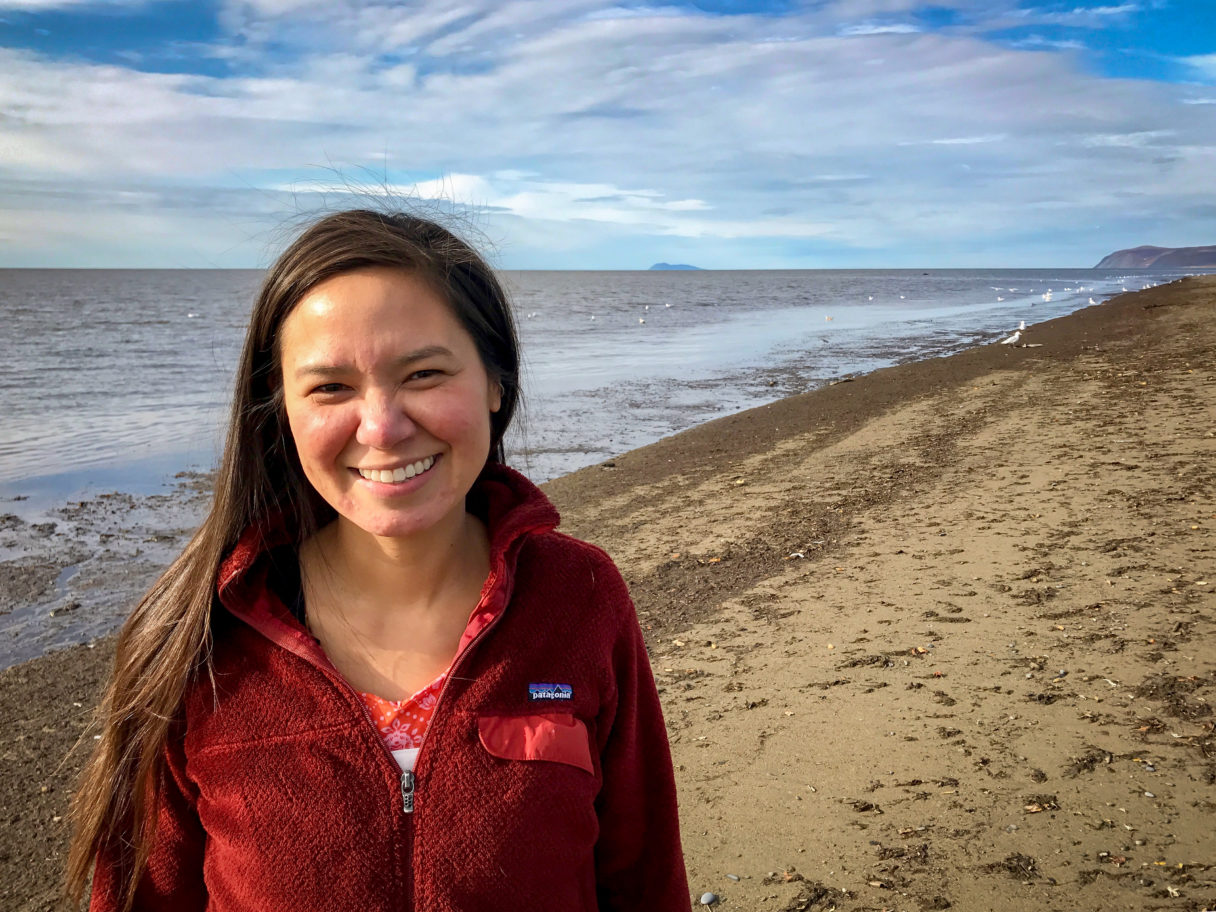
Alaska Native writers whose work is widely published and read by many are not very common nowadays. However, one published writer from the Norton Sound region is set to receive an award from the State of Alaska which she hopes will inspire more Alaska Natives to share their words with others.
Although she has had less time to write lately with the birth of her son almost seven months ago, Laureli Ivanoff of Unalakleet continues to reach wide-ranging audiences with her writing.
Ivanoff’s most recent piece from October, “The Bearded Seal My Son May Never Hunt,” was published in The New York Times. Now, the nationally-published writer is being recognized by the State through a Governor’s Arts and Humanities Award.
For Ivanoff, this honor was surprising, humbling, and even a little awkward.
“In our communities and where we live, we are taught by example to be humble and not to bring attention to ourselves,” Ivanoff said. “So, to receive this award — and it’s a Governor’s award — it’s a little uncomfortable for me.”
Ivanoff says balancing those feelings and emotions has even prompted a writing topic for her next piece.
This is not the first time, though, that Ivanoff’s writing has put her in the spotlight; she says she’s even been nominated for a Governor’s Arts and Humanities Award in the past. But this time around, the Unalakleet resident sees a nice change of pace with writings from an Alaska Native being recognized in this way.
“Honestly, it’s just really refreshing, and I think it speaks to the current trend where our country and our state are moving in a way where indigenous voices are being listened to and people of color are… you know, we have a voice and we have a presence, and we are not backing down,” Ivanoff said.
Laureli Ivanoff is one of nine award recipients selected from a large group of public nominees by the Alaska Humanities Forum, the Alaska State Council on the Arts, the Alaska Arts and Culture Foundation, and the Office of the Governor.
The award committee’s statement mentions that Ivanoff’s stories are written from and about her home in Unalakleet, which provides a sense of place and connection. Her work “strengthens communities by illustrating a side of rural Alaska too rarely seen in mainstream media.”
Ivanoff’s piece “Why Can’t Media Portray the Rural Alaska I Know,” is one of many articles she has published in the Anchorage Daily News (formerly the Alaska Dispatch) that speaks further to this point.
Ivanoff says she hopes her award will inspire other Alaska Natives and indigenous people to be writers, too.
“I feel like, often times, I’m the only Alaska Native writer at this point. There’s not a lot being published by Alaska Natives, so I just hope that more voices come to the forefront, more people study journalism, and more get into the media — because the way our communities are portrayed is very important,” Ivanoff said.
And as Ivanoff puts it, who better to share stories about Alaska Native communities than those who grew up and lived there. Her advice to those aspiring young writers from rural Alaska is this:
“If you’re a young person in high school or college and you really enjoy writing, that’s your own spirit telling you what your gift is to this world,” Ivanoff said. “Recognize it, cultivate it, and you’ll do great things.”
It will be a family affair when Ivanoff formally accepts her award next month in Juneau as she plans to bring along her husband, her baby boy, and her daughter, who will be a high school graduate by the time of the awards ceremony.
The Governor’s Awards Ceremony is scheduled for February 7 at the Juneau Arts & Culture Center.
Davis Hovey is a news reporter at KNOM - Nome.
Hovey was born and raised in Virginia. He spent most of his childhood in Greene County 20 minutes outside of Charlottesville where University of Virginia is located.
Hovis was drawn in by the opportunity to work for a radio station in a remote, unique place like Nome Alaska. Hovis went to Syracuse University, where he graduated with a Bachelor’s of Science in Broadcast Digital Journalism.




